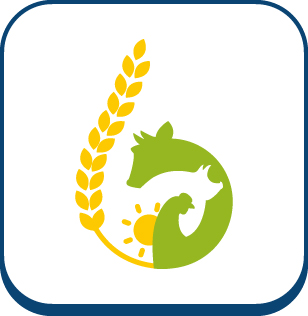Since pig breeds differ in their risk of developing boar taint, it is important to consider lineby-line selection by estimating genetic parameters of odorant compounds in relation to sexual development and production traits. The present study focused on French Landrace, one of the main French maternal lines. More than 1000 non-castrated males were measured for growth rate, body composition and meat quality, fat-odorant compounds, androstenone and skatole, and four steroid hormones. As expected, heritability values were high for androstenone (h²=0.69) and estradiol (h²=0.79). Genetic correlations of boar taint compounds were moderate to high with testosterone and estradiol but close to 0 with progesterone and cortisol.
Genetic correlations of these compounds were low with growth rate, ultimate pH or color, but moderate and favorable with carcass leanness. It is therefore possible to include fat-odorant compounds in selection objectives, either directly or via sex hormones, while controlling their
impacts on production performance.
Article en accès ouvert disponible ici (s’ouvre dans le site de l’éditeur)
Genetic determinism of boar taint in the French Landrace pig breed
Ajouter à ma liste
Auteurs :
Larzul C, Mercat MJ, Hassenfratz C, Carillier-Jacquin C, Comte R, Blanchet B, Louveau I, Boulot S, Prunier A
Fiche technique
Titre :
Genetic determinism of boar taint in the French Landrace pig breed
Date sortie / parution :
2022
Référence :
World Congress on Genetics Applied to Livestock Production (WCGALP), 3-8 juillet 2022, Rotterdam, Pays-Bas










